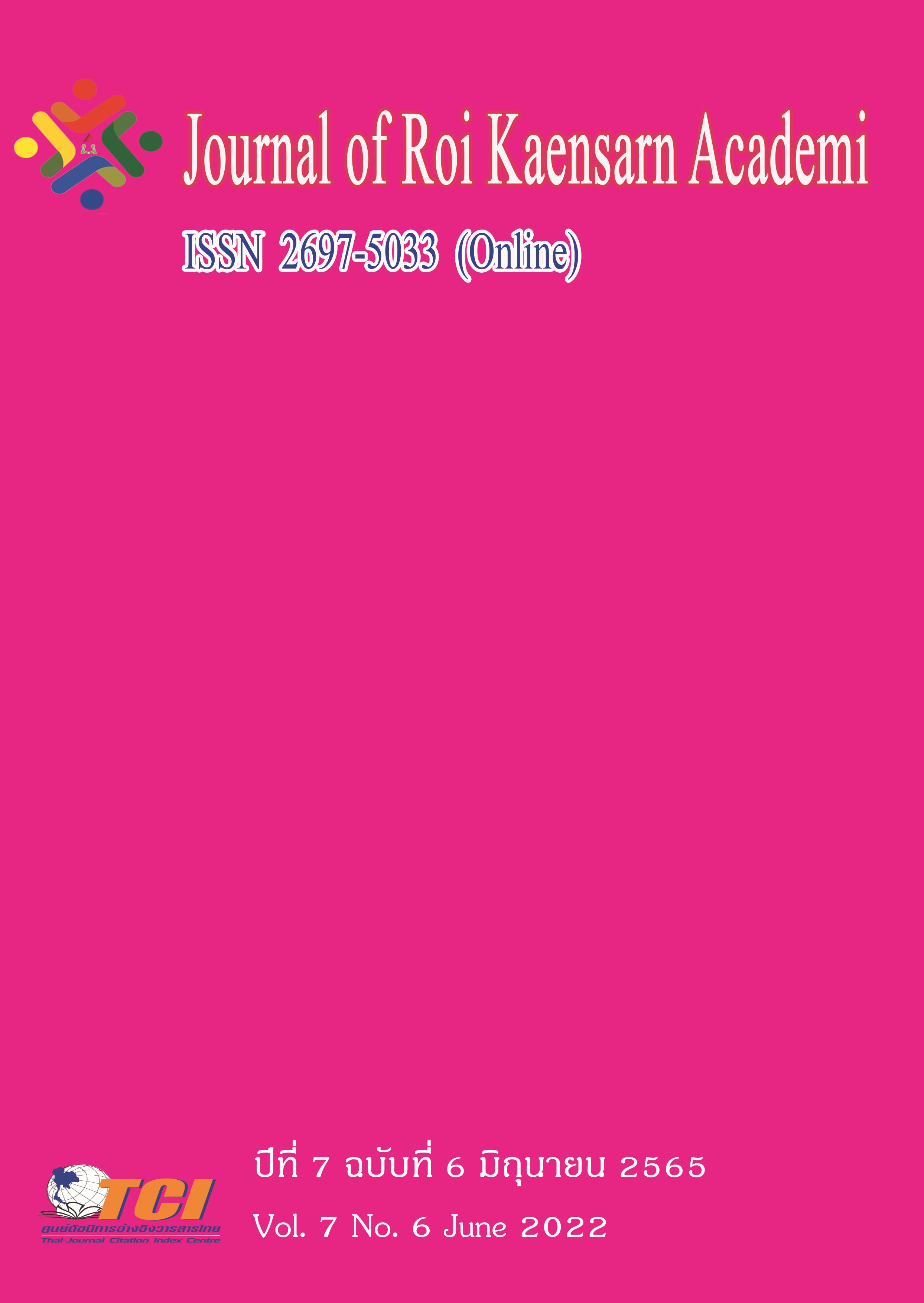Development a Board Game : The Fruit-Veggie Wonderlands Game, Nutrition Education Tools For Elementary School Students
Main Article Content
บทคัดย่อ
Promoting nutrition literacy through appropriate games for school-aged children is a key principle that helps revitalize learning at this age. The purpose of this research is to develop board games to be learning media on nutrition related to the value of fruits and vegetables. Game outcomes created by three experts were assessed, and game satisfaction was assessed using a satisfaction questionnaire among elementary school-aged children in grades 4-6 (n = 30).
The results of the study found that the game has an average expert rating of 16 out of 20. Satisfaction after playing the game among 18 male and 12 female students was 13.5 points (90%), with the highest scores being game enjoyment (100%), game aesthetics (97%), overall game preference (93%), game duration (87%), and game ease (73%), respectively. School-aged children are highly satisfied with the game. This fruit and vegetable wonderland board game can be used as an educational material suitable for children and may help increase the nutritional knowledge of fruits and vegetables in school-age children effectively.
Article Details
เอกสารอ้างอิง
Anderson, W. and Krathwohl, D. (2001). A Taxonomy for Learning, Teaching, and Assessing: A Revision of Blooms’ Education Objectives. New York, NY: Longman.
Alvina, A. et al. (2017). The Influence of Game "Nutrients Hero" For Healthy Diet. Procedia Computer Science. 116, 81–86.
Baid, H., & Lambert, N. (2010). Enjoyable learning: The role of humour, games, and fun activities in nursing and midwifery education. Nurse Education Today, 30 (6), 548-552.
Bonati M and Campi R. (2005). What can we do to improve child health in southern Italy?. PLoS Med. 2, e250. doi:10.1371/journal.pmed.0020250
Chagas, C. M. D. S., et al. (2018). Rango Cards, a digital game designed to promote a healthy diet: a randomized study protocol. BMC Public Health. 18 (1), 1-10.
Chen, P. G., Liu, E. Z. F., Lin, C. H., Chang, W. L., Hsin, T. H. and Shih, R. C. (2012). Developing an Education Card Game for Science Learning in Primary Education. IEEE Fourth International Conference on Digital Game and Intelligent Toy Enhanced Learning, (236-240), DOI: 10.1109/DIGITEL.2012.63.
Cullen, K.W, et al. (2005). Squire’s Quest: intervention changes occurred at lunch and snack meals. Appetite. 45, 148–151.
Dickey, M. D. (2010). Murder on Grimm Isle: The impact of game narrative design in an educational game-based learning environment. British Journal of Educational Technology. doi:10.1111/j.1467-8535.2009.01032.x
Folkvord, F., Anastasiadou, D.T., & Anschutz, D. et al. (2017). Memorizing fruit: The effect of a fruit memory-game on children's fruit intake. Preventive Medicine, 5, 106-111.
Huang, W. H. (2010). Evaluating learners' motivational and cognitive processing in an online game-based learning environment. Computers in Human Behavior. doi: 10.1016/j.chb.2010.07.021
Jones, B.A., Madden, G.J., Wengreen, H.J. (2014). The FIT Game: preliminary evaluation of a gamification approach to increasing fruit and vegetable consumption in school. Preventive Medicine. http://dx.doi.org/10.1016/j.ypmed.2014.04.015.
Kirikkaya, E. B., İŞERİ, Ş., & Vurkaya, G. (2010). A board game about space and solar system for primary school students. The Turkish Online Journal of Educational Technology, 9 (2), 1-13.
Rungthip Sornsingh, Pornchai Thongchuea, and Ponglak Jitkarun. (2017). A comparative study of problem solving ability of preschool children before and after organizing learning experiences using educational games. Curriculum and teaching disciplines Master of Education Program, Faculty of Education, Phibunsongkhram Rajabhat University, Faculty of Education, Phibunsongkhram Rajabhat University.
Srichan, C. (2018). Development of nutrition education tools for pediatric patients. TUH Journal. 3 (1), 13-16. In thai.
Suchart Sanpich. (2015). Developing a collaborative learning model using online games to develop scientific process skills. Veridian E-Journal, Thai version, Humanities, Social Sciences and Arts, 8 (2), 1413-1426. In thai.
Torkar, G., Pintarič, M., Koch, V. (2010). Fruit and vegetable playing cards: utility of the game for nutrition education. Nutrition & Food Science, 40 (1), 74-80.
World Health Organization. Overweight and Obesity. (2012). https://www.who.int/en/news-room/fact-sheets/detail/obesity-and-overweight
Yien, J. M. et al. (2011). A game-based learning approach to improving students’ learning achievements in a nutrition course. The Turkish Online Journal of Educational Technology. 10 (2),1-10.32.
Viggiano, A. et al. (2014). Kaledo, a board game for nutrition education of children and adolescents at school: cluster randomized controlled trial of healthy lifestyle promotion. European Journal of Pediatrics. 15 (2), 217-228.
Zheng W, Suzuki K, Sato M, Yokomichi H, Shinohara R, Yamagata Z. (2014). Adolescent growth in overweight and non-overweight children in Japan: a multilevel analysis. Paediatr Perinat Epidemiol. 28, 263–269. doi:10.1111/ppe.12116

